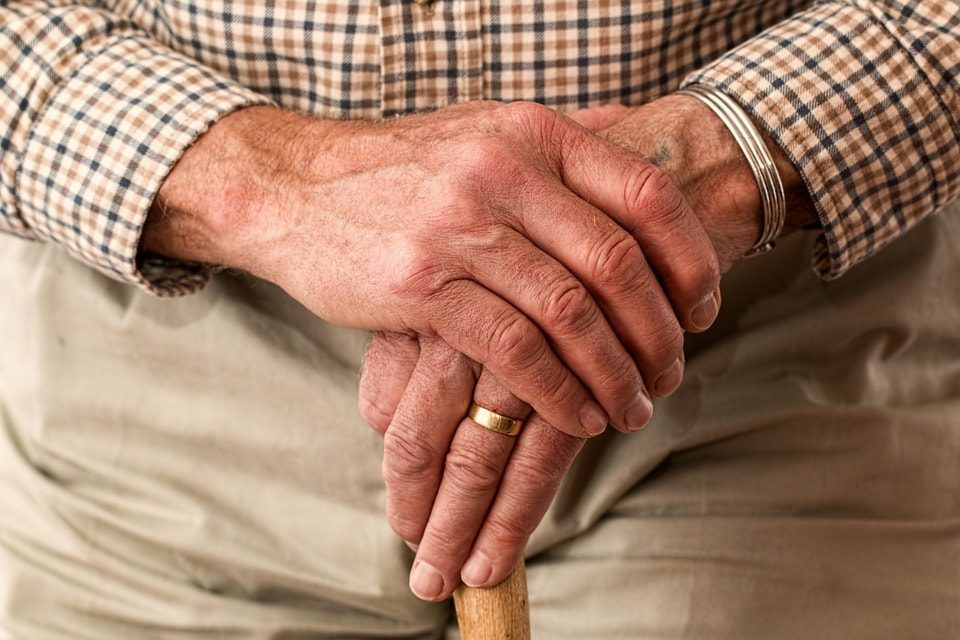1. Between 2000 and 2015, deaths from heart disease decreased by 11% while deaths from Alzheimer's increased 123%.
2. 5.7 million Americans are living with Alzheimer's, and 16.1 caregivers provide unpaid care for those living with Alzheimer's or another dementia valued at over $232 billion.
3. Every 65 seconds someone in the US is diagnosed with the disease, and over 14 million are projected to be living with it by 2050.
4. 1 in 3 seniors dies from Alzheimer's or another dementia, now killing more people than breast and prostate cancer combined.
... The numbers are sobering, and the time to act in the best interest of our loved ones is now, my friends.
I'd like to welcome Ms. Lydia Chan to discuss items of pertinence when considering an effective, safe home environment as a potential caregiver...
Staying at Home
It can be crucial to keep loved ones at home for as long as possible, if viable. Being surrounded by people who love them and items they know can inspire their memory. You know your loved ones better than anyone else, and what their triggers might be; therefore, by keeping them at home, or getting in-home assistance, you can give your loved ones the quality of life they deserve. Survey your house and decide what needs to be changed.
Labels
A label maker, or even duct tape with a permanent ink pen will be beneficial. Your loved one is going to forget things you may see as basic. A way to help you both is to label things in large, clear print. Label objects, from remotes to the washing machine, but also label areas of your home for your loved one to see, including bathrooms, drawers (along with what they contain), and the front door. Medicines are especially important to label. Be prepared to change these labels as needed. Your loved one's condition is not going to be static and may deteriorate.
Clean and Clear
Be certain all walkways in your home are clear. Loved ones are going to have a more difficult time focusing, so get any hazards out of their way. If there are rugs or loose carpeting, remove them or make sure they are completely secured. The pathways must also be clearly defined. You don't want to confuse, and thereby stress, loved ones any more than the situation already entails. If they know how to get from the living room to the restroom, their lives will be all the easier.
Limiting Access
It isn't enough to trust that your loved one with Alzheimer's will know what is off-limits, or that any hired caregiver will have constant vigilance over them. This is one way, among others, modifications to your home are imperative. Install locks to keep your loved one out of dangerous or hazardous areas, such as the garage, medicine drawer, drawers with cooking knives, front door, basement or attic, if applicable.
Update Hardware
Doorknobs are going to be difficult for loved ones to grab and turn, and switches may be difficult for them to navigate. Smaller items like these will need to be replaced for ease of use. More lighting to make sure they can see better and are less likely to trip or injure themselves is also important. You may consider either movement sensor lights, or install light switches near each and every door.
Disability Grants
Some modifications to your home are going to be much more expensive than others. Installing a chairlift if you have a multi-story home may be important, but the price can be intimidating or downright impossible. The silver lining is that there are government and private grants out there to help you support your loved one with Alzheimer's. You do not need to feel you are alone in this or that you will lose all of your savings. In addition, there are many websites out there to help you find organizations and office branches for various grants to further help you.
With this diagnosis comes change, not just for your loved one's life, but yours as well. You need to prepare yourself and consider a touch of remodeling to your home in order to keep him or her living with you as long as possible. It is going to be a challenge, but keeping your family member at home will provide you both with meaningful time together during this long goodbye.
#Alzheimers #EndAlz #Caregivers #Caregiving #InHomeCare #Dementia #AlzheimersCare #LivingWithAlzheimers
Lydian Chan is a frequent guest blogger on numerous sites, and founded AlzheimersCaregiver.net to help fellow caregivers on a variety of topics she experienced after her mother was diagnosed with the disease.
Image courtesy of Pixabay


 RSS Feed
RSS Feed